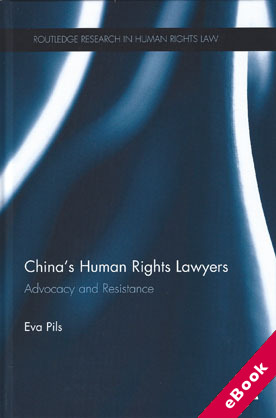
The device(s) you use to access the eBook content must be authorized with an Adobe ID before you download the product otherwise it will fail to register correctly.
For further information see https://www.wildy.com/ebook-formats
Once the order is confirmed an automated e-mail will be sent to you to allow you to download the eBook.
All eBooks are supplied firm sale and cannot be returned. If you believe there is a fault with your eBook then contact us on ebooks@wildy.com and we will help in resolving the issue. This does not affect your statutory rights.
China's human rights lawyers are important: as legal advocates for victims of injustice; as proponents of legal and political change in China; as part of the global and international struggle for human rights; and as persecuted individuals. Based on years of fieldwork research and hundreds of anonymised conversations with several dozen human rights or, for short, 'rights lawyers' (weiquan lushi), this book provides a portrait of this extraordinary group of people. This book offers a unique and invaluable insight into contemporary Chinese law and politics, reflecting on the significance of the idea of rights in Chinese society and understanding how and why rights lawyers play the role they do. It answers questions such as: how do rights lawyers operate? What, if any, is rights lawyers' impact on legal practice? How do they interact with their bureaucratic, professional, and social environments? How and why do they resist repression? What is their significance for political developments in China in the longer term?
Its chapters discuss how some Chinese lawyers become 'rights lawyers', and examines how bureaucratic systems of control operate to subdue and marginalise human rights lawyers as well as how such lawyers challenge the system. The lawyers' experiences of repression at the hands of the police and state security apparatus are analysed in detail along with the intellectual, political and moral resources they draw on. The book thus sets out what human rights lawyers in China are and what they stand for; an account that captures their experience at the hands of the legal-political system and by doing so, reflects on what that system is like. The audience for this book includes students and scholars of law, Chinese studies, political studies, international relations, and sociology and it is also addressed to people working in the fields of human rights advocacy, law, politics, international relations, and journalism.